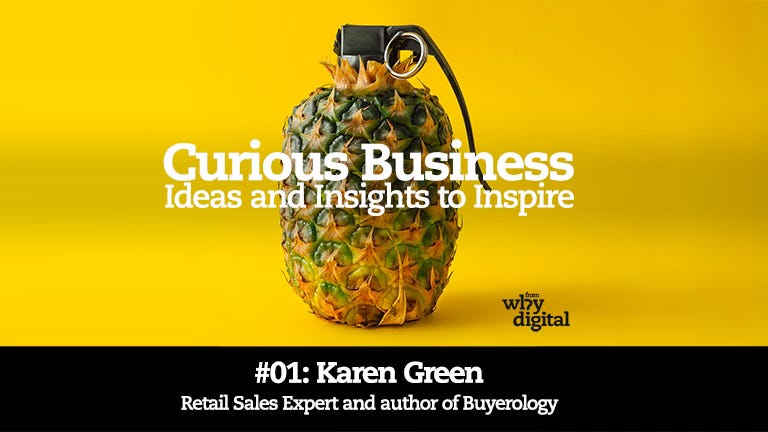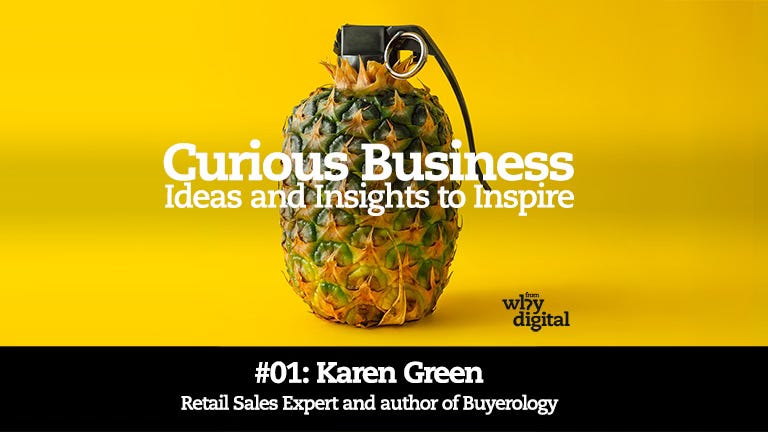Understanding buyers: the key to successful selling?
Do you like selling? Can you run a business if you don’t? How does understanding the psychology and perspective of your buyer help?
The reality is that sales is everywhere, and not just the kind where you’re trying to make people buy your products (or services). The sales mindset is at the heart of everything, from getting people to take notice, collaborate, and invest. It’s even helpful when looking to progress in your career or persuading people to share your mission. With that in mind, I was excited to talk to Karen Green, author of the book Buyerology recently.
We discussed the psychology and dynamics of selling, as well as everything from the surprising (even shocking) lengths some buyers will go to gain leverage and how not to sell, to when to start building your power and the hardest thing about negotiation.
“I do meet quite a few entrepreneurs who say ‘I don’t like sales’. I don’t know how you can, other than if there’s two of you… How can you run a business if you don’t like selling.” Karen Green, author of Buyerology.
One of the central themes in Buyerology is that buyers are human. Despite working inside companies with governance and ‘best practice’, a purchase often has an emotional element. It’s not just a logical decision based on facts and pricing. Karen’s BUYER-ology framework underscores the importance of being prepared to find an approach that addresses the individual needs and personality of your buyer.
Born to sell?
Having been born into retail as the daughter of a department store owner before beginning her career as a professional buyer for Tesco and Boots, retail and sales are in Karen’s blood. She then moved across the negotiating table, from buyer to seller. After several commercial roles, she now helps businesses sell to professional buyers, most frequently in retail and FMCG.
Dominant and analytical
Karen’s analysis of buyer personalities suggests that people who buy for a living tend to be dominant and analytical. They’re focused on doing the deal and boosting the P&L in their area. Very much not ‘people people’.
The lesson here is that, like any buyer you will encounter, they are thinking much more about their business and bottom line than what you’re offering. Even for professional buyers, seeing suppliers only represents as little as 20% of their time. The rest goes on tasks like dealing with operations, preparing and onboarding, analysis and presentations, fighting fires, building their category or range, etc.
Room for emotion?
All that said, most companies need suppliers, especially retailers. If they’re not looking for new options, they risk missing out on innovation, fresh ideas, and market share. It isn’t all just about securing the best price for what they already buy. That means there’s still room for emotion in buying decisions. But, says Karen, to succeed, they need to know about your offer long before they start a sales process or issue a tender.
Ultimately, how you need to sell must be baked into your business plan, not left until it’s time to starting pitching. Karen’s advice is to start with the end in mind so you know what evidence, funding, audience and awareness you need to build in order to make the key sales that will grow your business.
Check out the Curious Business podcast for more of Karen’s insights and experiences on preparing, pitching and keeping going post-sale, including the shocking lengths professional buyers will go to for leverage. Listen here.
Karen’s Buyerology book is available from Amazon.




